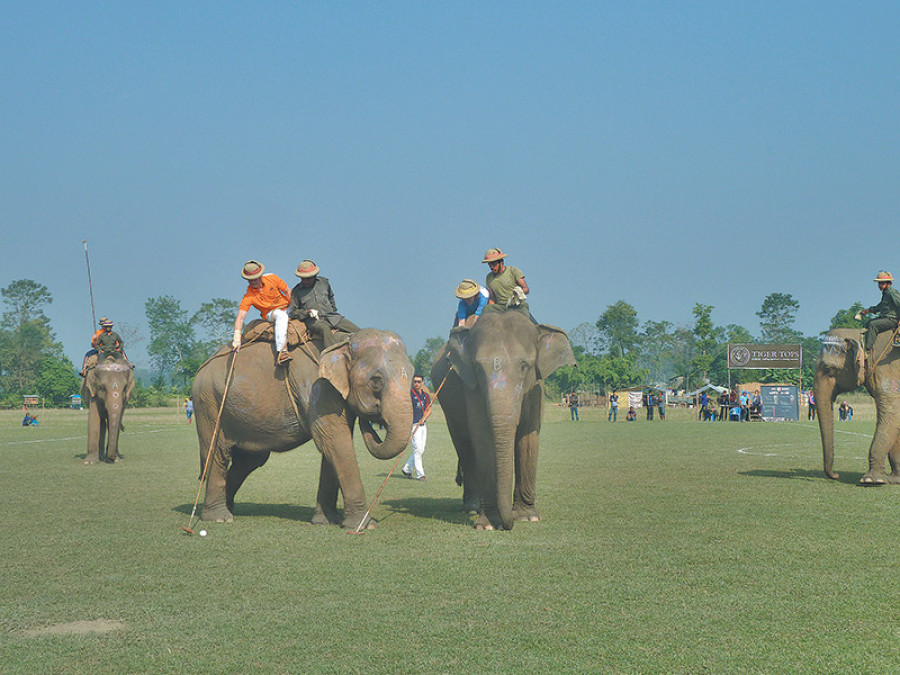Money
Responsible Tourism: Curtain comes down on elephant polo after 35 years
The curtain has finally been drawn on Nepal’s most popular but unusual sport known as elephant polo, which is played every winter on a grass field in Meghauli, Chitwan, after 35 years.
Sangam Prasain & Nabin Poudel
The curtain has finally been drawn on Nepal’s most popular but unusual sport known as elephant polo, which is played every winter on a grass field in Meghauli, Chitwan, after 35 years.
Pioneer of eco-tourism, Tiger Tops, the organiser of the annual International Elephant Polo Competition, has announced that it would stop hosting the event from this year to support the movement against animal cruelty.
Elephant polo was first introduced in Nepal in 1982 after James Manclark, a scion of horse polo, started the pachyderm version of the polo with fellow enthusiast Jim Edwards.
The World Elephant Polo Association was formed in the same year at Tiger Tops Jungle Lodge in the then Royal Chitwan National Park in the southwest of Nepal.
The first games were played on a grass airfield in Meghauli, which is located on the edge of the Chitwan National Park.
The game is played by driving elephants using trainers called ‘mahouts’. Initially, a soccer ball was used in the game.
But after elephants started smashing the balls, they were replaced with standard polo balls. The sticks used in the game are made of bamboo and have a standard polo mallet on the end.
This unusual sport had been attracting hordes of foreigners in the jungle safari destination of Chitwan.
Tiger Tops has lately been actively supporting the international movement against animal cruelty. Last July, it stopped elephant-back safaris in a bid to end animal suffering. Adventure seekers now follow the jumbos on foot to observe their activities instead of riding on their backs for jungle sight-seeing.
DB Chaudhary, manager of Tiger Tops, said the initiative was taken to end animal suffering. For years, elephants were made to carry up to six people through the jungle for 2-3 hours per day. People were entertaining themselves at the expense of sufferings of these great animals. “After stopping elephant safaris, we have decided to stop hosting elephant polo as well,” Chaudhary said. “The termination of the popular event may disappoint tourists for some time, but it will end sufferings of elephants.”
Tiger Tops, which is now operating as Tiger Tops Tharu Lodge in Nawalparasi, believes the event’s termination will not affect prospects of wildlife tourism, as new activities like elephant camp, a responsible and sustainable tourism activity under which visitors are offered an elephant adventure that highlights the natural behaviour of the jumbos, are being held. Under the programme, guests can watch elephants living in spacious, natural corrals and immersed in chain-free life from morning to the evening. Since Tiger Tops was established more than 50 years ago, it has been pioneering environmentally responsible tourism.
In the 1960s, it took the first steps to establish national parks in Nepal and shoot tigers with cameras instead of rifles. Since then, it has been continuously working for wildlife conservation in Nepal.




 22.12°C Kathmandu
22.12°C Kathmandu














